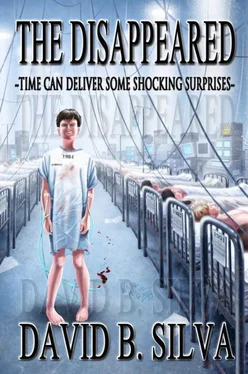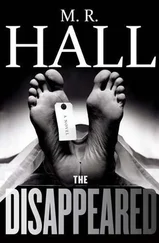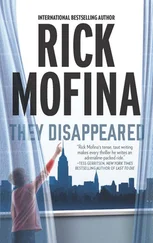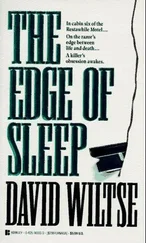“Why not?” Walt asked.
“Jesus, Walt, you know why. They wouldn’t believe me if I had caught the whole thing on videotape.”
He grinned, amused. It was his first smile of the evening, and she probably should have thanked him for it. He had put up with an awful lot from her. And not only the false sightings. Twice, when Teri had felt things were moving too slowly, she had gone directly to the press. It had made him look bad, and she hadn’t cared, because the only thing that had mattered to her was getting her son back.
Somehow, Walt had found it in himself to understand that.
“No,” he said, still grinning. “I don’t suppose they would.”
“And they probably wouldn’t believe you , either,” she added, playfully, though there was a certain thread of truth to that, too. They had both lost some credibility in those circles. At times, when she thought about it, she wondered if maybe that wasn’t the foundation of their friendship. Two lonely outcasts, clinging to each other as the lifeboat goes down.
“So what do you think we should do?” she said, her tone serious again.
“I guess we should start by taking a look at the house.”
Tucson, Arizona
The lights in the house were off.
The girls had gone to bed at nine, after watching the original Willy Wonka and the Chocolate Factory on video. Marian had given up and gone to bed shortly after eleven, saying she wasn’t looking forward to jury duty in the morning. She had kissed D.C. on the forehead and said, “I hope whatever it is that’s bothering you turns out all right.”
“It will,” D.C. had said, though he wasn’t nearly as certain of that fact as he may have sounded.
“Good.”
He had been sitting alone in the darkness for more than an hour now, fingering a cigarette the way a magician fingers a coin, across the back of his hand and back, skillfully, with little thought. Marian, who was a good woman and knew her place, was accustomed to his preoccupation with work matters. In this life, with this family, he was a high-tech consultant brought into companies to solve system crashes that could cost millions if he didn’t do his job quickly and efficiently. Marian understood it was a high-stress career. She understood it meant he had to travel often. She understood it was the kind of career that required him to be on twenty-four hour a day call. She also understood it involved a great deal of discretion. What she didn’t understand, what she would never understand, was this: D.C. was more problem-solver than consultant… and he didn’t solve high-tech system crashes. He solved security crashes.
The cigarette snapped between his fingers. He added the broken remains to a small pile already sitting on the end table next to the chair, then pulled another out of the pack and continued the monotonous routine of knuckling it across the back of his hand. Waiting was the burden of the beast. It was the part of his job he hated the most… hanging in limbo, not knowing what was going on. Most of all, it was that feeling of not being in control. At times like this, he felt like the defendant when the jury’s out. It was all in their hands now.
He had been toying with the idea of a Vodka Collins to take a bit of the edge off and had finally decided to go ahead and get to it—the hell with this waiting—when the phone rang. The receiver was in his hand, the ear piece pressed against his ear, before the first ring had faded.
“Tell me something I want to hear.”
“You were right. She delivered him where you said she would.”
“You have him back?”
“No.”
“Why not?”
“I screwed up. I didn’t cover an upstairs window.”
A muscle near his temple twitched and then relaxed again, and D.C. forced himself to take in a calming breath. It was going to be infinitely more difficult now that they had lost the upper hand. He released the breath in a long, slow exhale, running through worst case scenarios in his mind and wondering how long it would be before word got out about what had happened. Things were still salvageable, he supposed. They hadn’t gotten that far out of hand. Not yet. But it was going to take a stroke of luck to come out of this unscathed.
“What now?” the caller, who’s name was Mitch, asked.
“Wait. He’ll surface again.”
“You want us to keep the house under surveillance?”
“Is he still with Tarkett?”
“No, he’s with the Knight woman.”
“They won’t be going back to the house. Not for a good long time anyway. Just hang tight. Something’ll break.” D.C. paused, feeling the weight of that dark, brooding uncertainty that came with the territory when things seemed out of control. “And Mitch?”
“Yeah?”
“I want Tarkett to pay dearly for this.”
“I understand.”
When he got off the phone, D.C. sat in the darkness awhile longer, still absently twirling his cigarette. The smell of raw tobacco was strong, but that was a faraway, absent observation that went by for the most part unchecked. For the moment, his surroundings stepped into the background and he lost himself in his thoughts.
Time passed in a surreal, meaningless haze.
Thirty minutes later, he slowly climbed back to the here and now, noticing first that the pile of broken cigarettes had nearly doubled. His fingers stopped their twirling and he stared momentarily at the cigarette in his hands before breaking it in half and adding it to the pile.
Enough worry for one night.
In the bedroom, he stripped naked, climbed under the sheets, and snuggled up next to Marian. She smelled of the summer-fresh scent of a baby, the way she always smelled. It was her fragrance. It was the first thing he had noticed about her when they had met at a photographic exhibit at the University of Arizona. It was still what he liked best about her.
D.C. kissed her on the shoulder, then rolled over and went to sleep.
Something didn’t feel right.
Walt was struck by that knowledge almost immediately as he rounded the corner and first caught sight of the house. It was a suburban tract home, stucco and wood. A well-kept front yard. The siding would be in need of paint in another year or two. The house sat in the middle of the block. Walt had been here more times than he could remember, though the last time had been a good many years ago now. The place hadn’t changed much. Teri had taken good care of it.
He parked down the street, near the corner. Teri, who was sitting in front on the passenger side, sank deep into her seat and stared silently up the block at the house. She hadn’t said a word on the drive over.
“You okay?” he asked.
She nodded.
It was nearly one o’clock in the morning now. Small patches of the night sky had broken through the overcast and it was getting nippy out. The boy, who was snuggled into a little ball in the back seat, had fallen asleep. Walt checked to make sure he was all right, then turned to Teri.
“You better stay here.”
“Why?”
“I don’t like the way it feels.”
“You don’t think they’re still in the house, do you?”
“No, it’s not that. But you said something earlier about the vertical window next to the front door. Didn’t you tell me they had broken that window?”
“Yeah.”
There was a street light half-a-block up from Teri’s house, on the far side. Still, a thick, secretive band of shadow had settled across the front of the house, and to Walt at least, it appeared as if the window were still intact. For a moment, though he’d never admit it to anyone, especially Teri—in fact, he was barely able to acknowledge it at all—he wondered if this might be another one of those incidents , if maybe she had let her excitement about the boy overtake her.
Читать дальше












